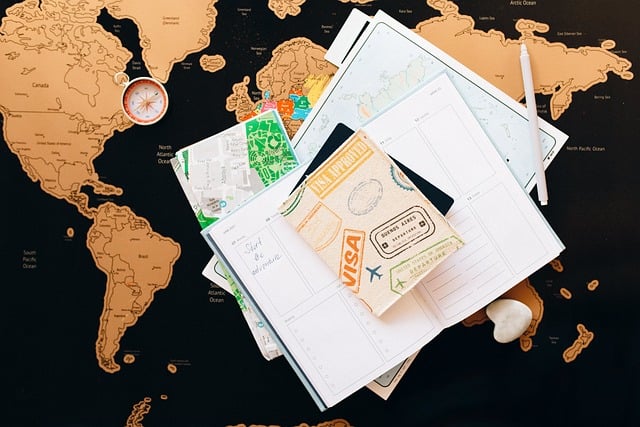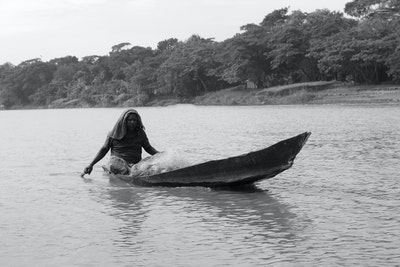VAWA Immigration: How It Empowers Victims to Stay in the U.S. Legally

For many immigrants, their legal status in the U.S. is tied to a family member—often a spouse, parent, or child who is a U.S. citizen or green card holder.
But what happens when that person is abusive? This is where VAWA (Violence Against Women Act) immigration comes in, allowing victims of domestic violence and extreme cruelty to apply for legal status without needing their abuser’s help or permission.
This law is a lifeline for those trapped in harmful situations, offering a way to break free without the fear of deportation. If you or someone you know is experiencing abuse, understanding how VAWA works could be the first step toward safety and independence.
Who Qualifies for VAWA?
To be eligible for a VAWA self-petition, you must meet specific VAWA requirements based on your relationship to the abuser and the type of mistreatment you have endured. The law provides protection for:
Spouses of U.S. citizens or lawful permanent residents (LPRs)
If you are currently or were previously married to a U.S. citizen or green card holder who subjected you to abuse or extreme cruelty, you may qualify. Even if your marriage ended due to divorce or the abuser’s death, you could still be eligible if you file within two years of the divorce or passing.
Children of abusive U.S. citizens or LPRs
If you are under 21, unmarried, and have suffered physical, emotional, or psychological abuse from a U.S. citizen or green card holder parent, you can file for protection. In some cases, children aged 21–25 may also qualify if they can demonstrate that the abuse was the primary reason for the delay in filing.
Parents of abusive U.S. citizen children (21 or older)
If your son or daughter, who is a U.S. citizen and at least 21 years old, has subjected you to mistreatment, threats, intimidation, or other forms of extreme cruelty, you may be eligible to self-petition under VAWA.
Importantly, abuse under VAWA is not limited to physical violence. It also includes emotional, psychological, financial, and sexual abuse, as well as extreme control or threats that create an unsafe living situation. Additionally, petitioners must demonstrate good moral character, meaning they have not engaged in serious criminal activity or other disqualifying behaviors.
The Benefits of Filing Under VAWA
One of the most powerful aspects of VAWA is that it allows survivors to take control of their immigration process without the abuser’s knowledge or involvement. This means:
- You don’t need the abuser’s permission – The self-petition process is confidential, and the abusive family member will never be notified.
- You can work legally in the U.S. – Once your petition is approved, you may qualify for a work permit while awaiting a green card.
- You gain a path to a green card – VAWA applicants can apply for lawful permanent residency, opening the door to a more secure future.
- You may access certain benefits – Depending on your situation, you might qualify for government assistance, such as public benefits or housing aid.
The VAWA Application Process: How It Works
Applying for VAWA involves filing Form I-360, the petition for self-petitioning battered spouses, children, or parents. Here’s what to expect:
1. Preparing Your Evidence
Your case must include strong supporting documents proving both your relationship to the abuser and the abuse you endured. Evidence may include:
- Police reports, medical records, or restraining orders
- Sworn affidavits from friends, family, or professionals
- Emails, texts, or other communications showing abuse
- Psychological evaluations or counseling records
2. Filing Form I-360
This is your official request for protection under VAWA. If approved, you can then move forward with applying for a green card.
3. Applying for a Green Card
If you are already in the U.S., you may be eligible to file Form I-485 for adjustment of status. This allows you to obtain lawful permanent residency without leaving the country.
Common Misconceptions About VAWA Immigration
Many people hesitate to apply for VAWA because they believe certain myths. Here are some of the most common:
“I have to be a woman to apply.”
False. VAWA protections extend to all genders, including men and non-binary individuals.
“I need police reports to prove the abuse.”
Not necessarily. While official reports help, VAWA cases can be approved with personal statements and supporting evidence.
“My abuser will find out if I apply.”
No. The process is strictly confidential, and USCIS does not inform the abuser.
“I can’t apply if I’m undocumented.”
Actually, many undocumented immigrants qualify for VAWA protections and can even gain legal residency through the program.
How Long Does the VAWA Process Take?
Processing times vary, but generally:
- I-360 approval: 12 to 24 months
- Work authorization (if eligible): 6 to 12 months after filing adjustment of status
- Green card approval: Can take several years, depending on USCIS backlogs and visa availability
While the wait can be long, having a pending VAWA case may provide certain protections, such as deferred action from deportation.
Moving Forward: Seeking Support and Legal Guidance
If you or someone you know is eligible for VAWA, seeking help from an immigration attorney or an organization that specializes in domestic violence and immigrant rights is crucial. Navigating the process alone can be overwhelming, and expert guidance ensures that your petition is as strong as possible.
Freedom from abuse should never come at the cost of your immigration status. VAWA exists to protect survivors, giving them the power to rebuild their lives on their own terms. If you qualify, know that you have rights—and options—to secure your future in the U.S.






